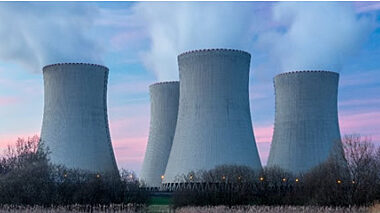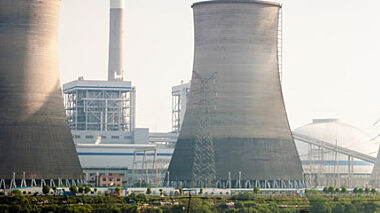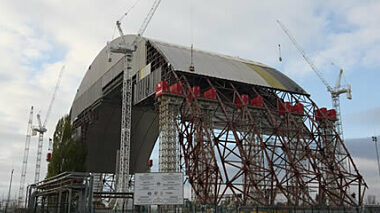Nuclear Industry Consultancy Services
Lucideon's expertise spans the nuclear industry, from new materials development and selection, comprehensive testing and analysis, to additive manufacturing support and failure analysis. These can be applied to 10CFR50 Appendix B commercial-grade dedication support, detrimental materials analysis, new material, vendor, process and product qualifications, failure investigations, and waste management programs.
Lucideon is playing its part in the development of several promising technologies that could greatly impact the future of the nuclear industry. We are pioneering novel geopolymer encapsulants for those hard-to-treat problematic wastes (MALLETTM) and we are world leaders of Flash (Field Enhanced) Sintering, an improved sintering process for nuclear fuel kernels and pellets.

We understand the rigorous quality assurance requirements mandated by ISO 17025, Nadcap (aerospace and defence industry) and 10 CFR 50 Appendix B (nuclear utility industry) and we apply it to each and every job we perform, regardless of whether it requires conformance to any of these accreditations.
Materials and process consultancy
- Thermal aging and endurance studies
We analyse the behaviour of materials inadvertently exposed to safety-related environments in order to assess degradation potential and detrimental effects.
- Corrosion assessments
We can perform metallurgical evaluation of components to determine if the root cause of premature corrosion damage is due to material or manufacturing deficiencies, or to environmental factors.
- Failure analysis
We identify contaminants and unknown materials and determine the root causes of failures in motors, generators, and other electrical equipment.
Testing and characterisation
Commercial-grade verification testing
We will verify your material properties, such as chemical composition, physical dimensions, mechanical strength, bond strength, and electrical insulation properties, of off-the-shelf components such as bearings, tapes, resins, gaskets, cables, greases, and solder.
Contamination identification
Through chemical composition of materials, we can determine whether the issue is with component degradation or introduction of contaminants.
Material irradiation effect studies
We will evaluate, via controlled exposure and testing protocols, the degradation potential of material properties for components used in irradiated areas.
MALLETTM – A breakthrough solution for problematic wastes
MALLETTM: MIDAR® - Augmented Lower-cost Lower-carbon Encapsulation Technique. The aim of MALLET is to provide a solution to a global challenge known as problematic nuclear wastes, which are those wastes for which safe, efficient, and cost-effective methods for processing are not readily available. We can tackle a range of problematic wastes that include contaminated Sludges, Oils, Zeolites and Graphite.
White Papers






